Insider Tips On How To Buy A Chicken Coop
For your chickens to be safe and enjoy their living with you, therefore you need to buy your buddies a chicken coop.
One of the best shelters that you should go for is a coop that suits your environment whether you are up in the hills or low down where fog can be prevalent.
Now… If you have the skills, you can construct a chicken coop by yourself; why not?
However, if you don’t have the skills you should consider buying a hen house.
There are plenty to choose from whether it’s on the internet or going to a hardware store that just might have what you want.
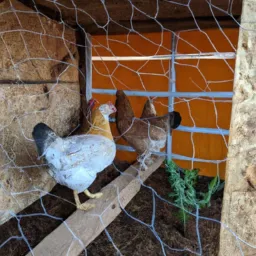
But for me when I look at these coops for chickens I want to improve on them.
Yes!
I see extensions and applying my own character to it.
How To Buy A Chicken Coop
For you to buy the right house for your chickens you need to consider a number of factors.
These factors include:
Size:
As a rule of thumb, you should ensure that the house is going to be large enough for all your chickens.
Make sure they have a place to perch and a place to lay eggs, and good ground coverage.
I don’t like skimping on their space but do consider not making it too large unless you intend on buying more chickens later.
As it might just be too roomy
Ventilation:
The hen house that you go for should not only provide your chicken with shelter, but it should also provide them with enough light and air.
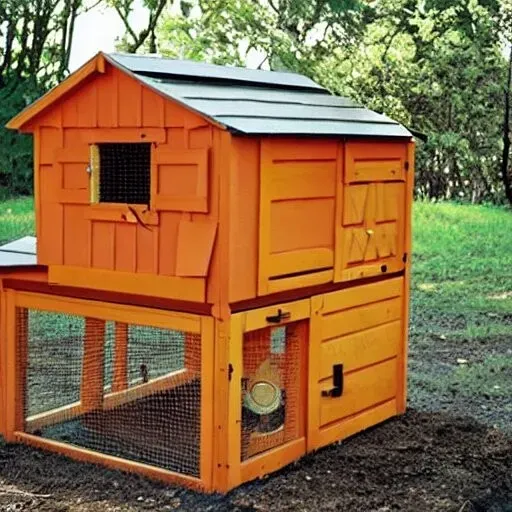
Chickens do need light to make them lay eggs, so it’s a good idea to have moderate light coming in from outside.
If the coop does not have any windows, consider putting one in. If the coop is secure on the outside of the run an open window is fine, as predators are not welcome in the hen house.
Chicken Run:
Chicken are of the bird variety, did the wings give them away?
And just because they have become relatively flightless over evolution it does not mean that they love to fly and run around.
When buying the coop you should ensure that it has an outside run for your birds.
I see many chicken coops for sale with only a little added chook run, I am not happy to let my chickens just run in this small space all the time.
They need their freedom as any of us do. So I would consider if you do buy a ready-made chicken coop extending it in the future.
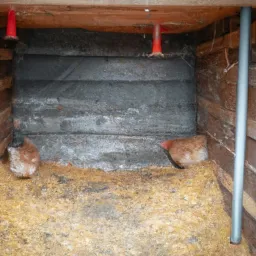
Maybe even keep the small run as it is and build another wire chicken run on the outside of it if you are not confident in taking it apart and changing the shop-bought chicken coop.
For ideal results, you should ensure that the run is connected to the coop by an entrance hole.
If there are predators in the area, you should go for a house that is fenced or fully enclosed.
I know you see a lot of chickens free-range, but when it comes to urban chicken living, you need to take care.
Hen House Door:
You do need a door, people…
And you should ensure that the door opens inwards just in case a hen decides to make a run for it, you can block her off.
And the door is large enough for you to enter without squeezing through the entrance, and comfortably clean the hen house.
See also What Necessities Do You Need To Build A Simple Chicken House
Chicken Feeder:
You can have an inbuilt feeder system and water container if you like.
I never went that fussy, but with all the gadgets out today to make your life just that little easier…
Why not!
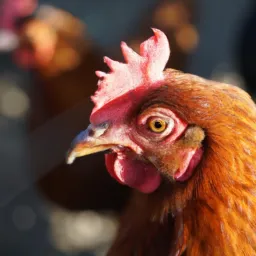
If you don’t have the money now, you could buy one later.
The Hen House Hunt: A Humorous Guide to Buying a Chicken Coop
Are you ready to take the plunge into the clucky world of backyard chickens?
Well, hold onto your feathers because we’re about to embark on an egg-citing adventure: buying a chicken coop!
In this humorous and informative guide, we’ll navigate the wild world of hen houses and help you find the perfect coop for your feathered friends.
Get ready for a coop-tastic journey!
Coop Considerations: Hen House 101
Before we dive into the coop-buying bonanza, let’s cover some essential coop considerations.
These will help ensure that you find a coop that meets both your chickens’ needs and your backyard aesthetic.
Size Matters, but Not in the Way You Think
When it comes to chicken coops, size matters, but not just for your chickens.
Consider your available space, too.
You don’t want to end up with a coop that takes up your entire backyard and leaves you with no room for the BBQ parties you’ll be hosting with your clucky companions.
The Coop & the Beautiful: Aesthetics and Durability
While your chickens might not care about the color or style of their coop, you certainly do. After all, you want a coop that complements your backyard oasis.
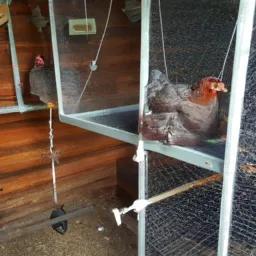
Opt for a coop that not only looks good but also stands the test of time. You don’t want it falling apart faster than you can say “chicken nuggets.”
Coop-cycling: Easy Cleaning and Maintenance
Chickens are delightful, but their poop?
Not so much.
Look for a coop that’s easy to clean and maintain.
Trust me; you don’t want to spend your weekends battling a poopocalypse.
Your future self will thank you for choosing a coop that makes cleaning a breeze.
The Great Coop Quest: Where to Find the Perfect Coop
Now that we’ve covered the coop considerations, let’s go on the great coop quest.
Here are a few places where you can find the perfect chicken coop:
Farm Supply Stores: The Coop Superstores
Farm supply stores are the Disneyland for chicken enthusiasts. From basic coops to luxurious palaces, you’ll find a wide range of options.
Grab a shopping cart and get ready to explore the chicken coop wonderland.
Online Marketplaces: Coops at Your Fingertips
If you prefer shopping in your pajamas (no judgment here), online marketplaces are your go-to.
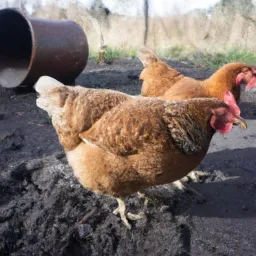
With just a few clicks, you can browse through a vast selection of coops, read customer reviews, and have your dream coop delivered to your doorstep.
It’s like the chicken coop version of online dating, minus the awkward first date.
DIY Adventures: Coop Crafting Extraordinaire
For creative souls and handy individuals, DIY coop building can be an exciting adventure. Channel your inner Bob the Builder and construct a coop that’s tailor-made for your feathered friends.
Just be prepared for a few extra trips to the hardware store and a couple of “oops” moments along the way. But hey, nothing worth clucking about comes easy!
See also The Importance of Proper Chicken Coop Door Sizing
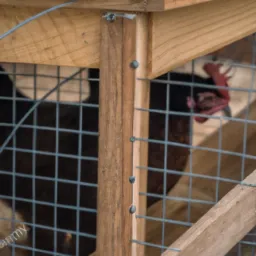
Coop Buying Dos and Don’ts: A Feathered Checklist
To wrap up our coop-tastic journey, here’s a quick checklist of coop buying dos and don’ts to keep in mind:
- Do: Measure your available space before buying a coop.
- Don’t: Get swayed by a coop that’s way too big or fancy for your needs.
- Do: Consider the durability and aesthetics of the coop.
- Don’t: Choose a coop that looks like it belongs in a chicken fashion show but falls apart after a light breeze.
- Do: Look for a coop that’s easy to clean and maintain.
- Don’t: Buy a coop that requires a degree in rocket science to keep it clean.
As we close the coop door on our hen house hunt, remember that finding the perfect chicken coop is a clucking good adventure.
Consider your chickens’ needs, your backyard aesthetics, and your own sanity when making your choice.
Whether you opt for a coop superstore, online marketplace, or DIY extravaganza, embrace the journey and get ready to create a cluck-tastic home for your feathered friends.
What To Do After Buying The Chicken Coop
Security:
The first thing that you could do is to secure your chicken house.
If you live in a rural area you could enclose the house with a ½ inch-square hardware cloth on all sides.

Doing this will prevent those pesky rats, mice, and other animals from burrowing underneath the house.
The cloth will also prevent hawks from swooping in from above, looking for a meal. And provide shade when your chickens are outside.
Perches:
Chickens just love staying on high ground; therefore, you should install roosting perches in the coop.
This is because when the chicken was not domesticated they perched in tall trees at night to keep away from predators.
Now, this instinct has not changed, they still have the urges of their ancient ancestors so perching up high makes them feel more secure, especially at nighttime.
As a rule of thumb, you should ensure that the perches are rounded and about 2 inches in diameter.
The best material to use is wood or plastic.
But to stay natural you can also use thick branches, not too thick enough that they can comfortably get their feet around it for gripping on.
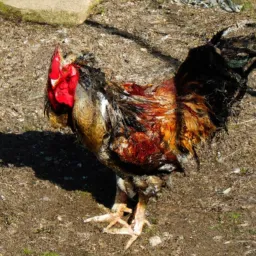
Nest boxes:
You only need one nest for every four or five chickens. They all don’t lay at the same time of the day, so walking in and doing their business and then leaving another hen to do the same is the done thing usually.
Not that I have ever seen two chickens in the same nest box at the same time of course. Oh, hold on I have!
But having an egg in the nest box encourages the hen to lay.
You can make the nests yourself or buy them from feed stores.
For ideal results, you should attach the boxes to the coop wall a few inches off the floor.
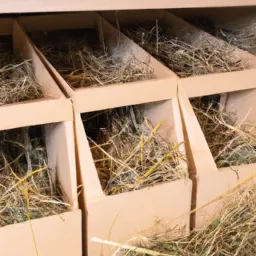
You should place them in a dark corner where you can easily retrieve the eggs.
The chicken coop is a house to your feathered friends and the same as having your own house you do need to think about what the chicken needs.
Put yourself in their feathers and think how much room you would like if you were them, and anything else…
No not a television.
Happy coop hunting!
